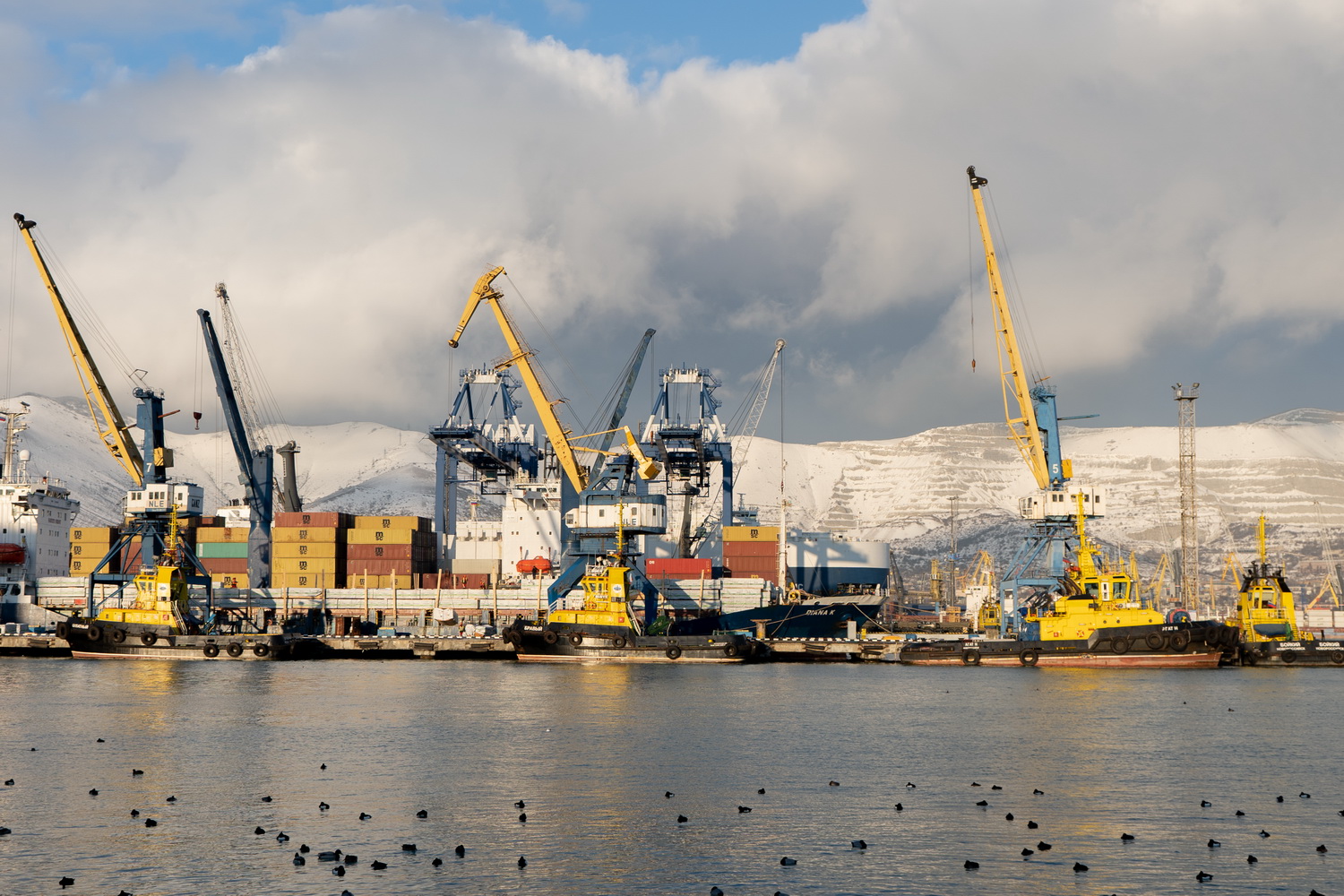
Combined cargo throughput at Russian seaports increased in January-November 2023 by 5.7% on the same period a year earlier, reaching 811.9 million tonnes, the Association of Russian Commercial Sea Ports (ASOP) statistics showed.
Dry bulk volume increased by 11.9% year-on-year to 413 million tonnes. The total dry bulk volume included: coal – 191.1 million tonnes (+1.1%), grain: 65.8 million tonnes (a 1.6 times growth), containerized cargo – 45.4 million tonnes (+9.8%), mineral fertilizers – 33.4 million tonnes (a 1.5 times increase), ferrous metals – 19.8 million tonnes (-13.6%), ores – 8.8 million tonnes (-25.4%), cargo transported by ferries – 7.4 million tonnes (+23.3%).
Liquid bulk segment showed a slight decline in Jan-Nov: the country’s seaports handled 398.9 million tonnes (-0.1%). The volume included the following commodities: crude oil – 248 million (+5.6%), oil products – 111.5 million (-11.8%), liquefied gases – 30.9 million (-3.6%), food – 5.1 million tonnes (+25.2%). The seaports handled 634.5 million tonnes of exports (+4%), 35.3 million tonnes of imports (+7.1%), 59.2 million of transit cargo (+8.4%), and 82.9 million tonnes of coastal traffic cargo (+17.6%).
Freight traffic at the Arctic basin sea ports edged down 0.4% year-on-year to 89.6 million tonnes. The figure included 28.7 million tonnes of dry bulk cargo (+7.0%) and 60.9 million tonnes of liquid bulk cargo (-3.5%). The eleven-month volume of the Port of Murmansk reached 53 million tonnes (+3.6%), Port Sabetta handled 25.3 million tonnes (-2.6%), Varandey – 4.8 million tonnes (-10.3%) and Port of Arkhangelsk – 1.7 million (-19.6%).
The Baltic Basin seaports year-to-date volume rose 1.4% Y-o-Y to 228.3 million tonnes, including 103.9 million tonnes of dry bulk (+17.6%), and 124.4 million tonnes of liquid bulk (-9.0%). The Port of Ust-Luga handled 104 million tonnes (-8.0%), Primorsk port – 57.7 million (+9.1%), Great Port of St. Petersburg – 44.9 million (+25.9%), Port of Vysotsk –12 million (-18.1%).
The Azov-Black Sea basin seaports showed a balanced increase of 12.2% in Jan-Nov reaching 267.5 million tonnes. At the same time, the dry bulk volume increased by 19.3% to 130.3 million tonnes, and liquid bulk – by 6.2% to 137.2 million tonnes. The Port of Novorossiysk handled 146.7 million tonnes (+10.3%), the Port of Taman – 37.3 million (-3.7%), the Port of Tuapse – 22.8 million (+16.8%), the Port Kavkaz – 20, 1 million (+31.0%), and the Port of Rostov-on-Don – 15.3 million (+10.8%).
Eleven-month cargo volume handled at the Caspian basin seaports showed a 33.4% surge, hitting 7.2 million tonnes. Dry bulk segment demonstrated a 1.6 times growth to 4.6 million tonnes, while handled volume of liquid bulk was slightly down (-0.3%) to 2.6 million tonnes. The Port of Astrakhan throughput increased to 3.5 million tonnes (a 1.5-fold growth), and the Port of Makhachkala handled 3.2 million tonnes of different cargo (+18.9%).
The Far Eastern basin seaports volume increased by 4.7% to 219.3 million tonnes, including 145.5 million tonnes of dry bulk (+2.5%) and 73.8 million tonnes of liquid bulk cargo (+9.3%). The Port of Vostochny handled 79.3 million tonnes of different cargo (+5.2%), the Port of Vanino – 32.5 million tonnes (-5.1%), the Port of Vladivostok – 30.8 million (+3.8%), the Port of Nakhodka – 25.3 million (+6.4%), and Prigorodnoye port – 12.1 million (-14.2%).
There was a 40-percent increase in the number of passenger vessels handled since Jan through Nov – 82 200 units. The country’s seaports also handled 5.1 million passengers, which is also a 41.8-percent growth on the same period in 2022. The number of passengers departing from the ports totaled 2.58 million people (-21.3%), while the number of arriving passengers soared 7.2 times reaching 2.57 million people.
The majority of passengers were served at dedicated marine terminals in the seaports of Sevastopol – 4.6 million people (an increase of 1.6 times), of Sochi port – 272 000 people (+31.4%), and Yalta – 196 800 people (a 2.3 times decline).



